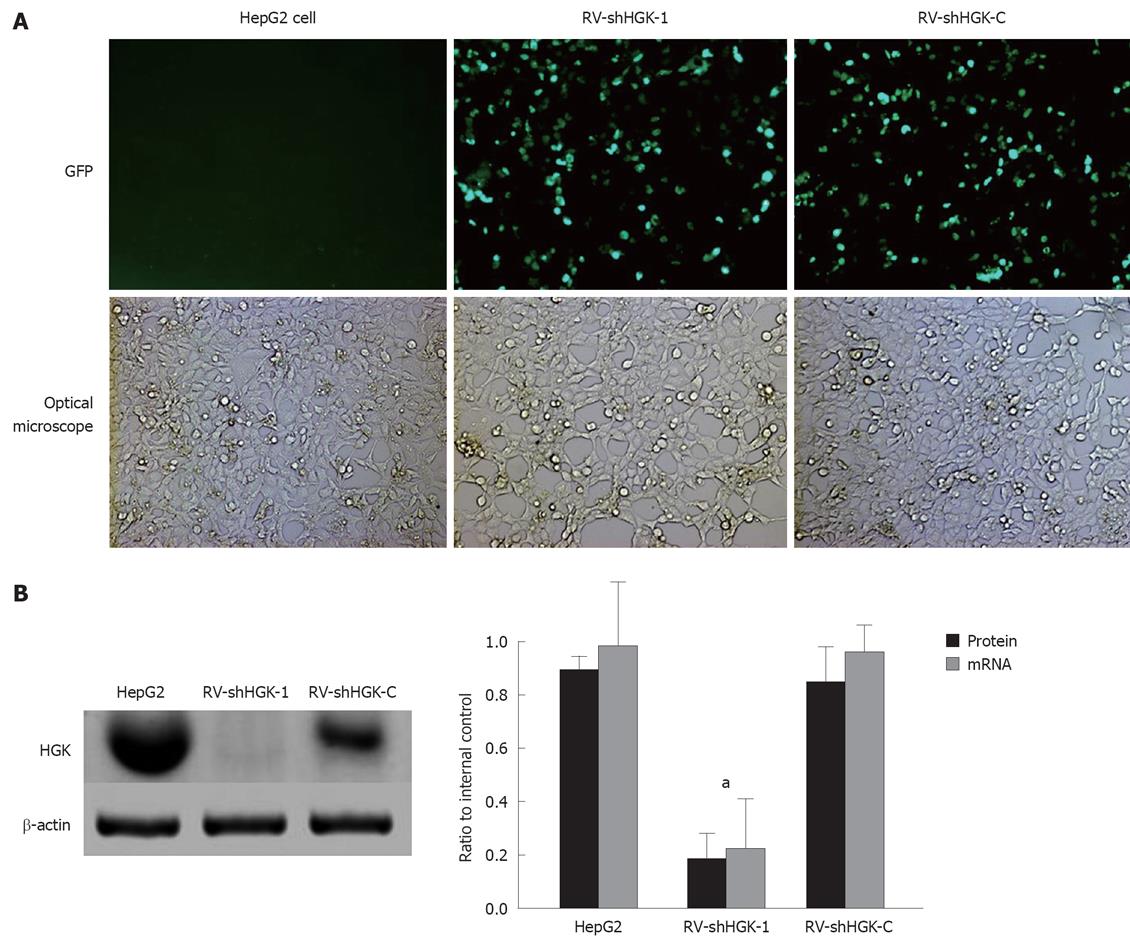Copyright
copy;2010 Baishideng Publishing Group Co.
World J Gastroenterol. Sep 28, 2010; 16(36): 4541-4548
Published online Sep 28, 2010. doi: 10.3748/wjg.v16.i36.4541
Published online Sep 28, 2010. doi: 10.3748/wjg.v16.i36.4541
Figure 2 Hepatocyte progenitor kinase-like kinase expression suppressed by RV-shHGK-1 retrovirus in HepG2 cells.
A: HepG2 cells infected with retrovirus mediating RNAi targeting of hepatocyte progenitor kinase-like kinase (RV-shHGK)-1 or RV-shHGK-C (multiplicity of infection = 4), GFP expression and the phase contrast images after 48 h (original magnification × 200); B: Protein and mRNA levels of hepatocyte progenitor kinase-like kinase (HGK) after HepG2 cells were treated with different retrovirus detected by real-time reverse transcriptase polymerase chain reaction and Western boltting assay. The retrovirus RV-shHGK-1 significantly inhibited HGK expression in HepG2 cells, aP < 0.05 vs HepG2 cells and HepG2 cells infected with RV-shHGK-C retrovirus.
- Citation: Han SX, Zhu Q, Ma JL, Zhao J, Huang C, Jia X, Zhang D. Lowered HGK expression inhibits cell invasion and adhesion in hepatocellular carcinoma cell line HepG2. World J Gastroenterol 2010; 16(36): 4541-4548
- URL: https://www.wjgnet.com/1007-9327/full/v16/i36/4541.htm
- DOI: https://dx.doi.org/10.3748/wjg.v16.i36.4541









